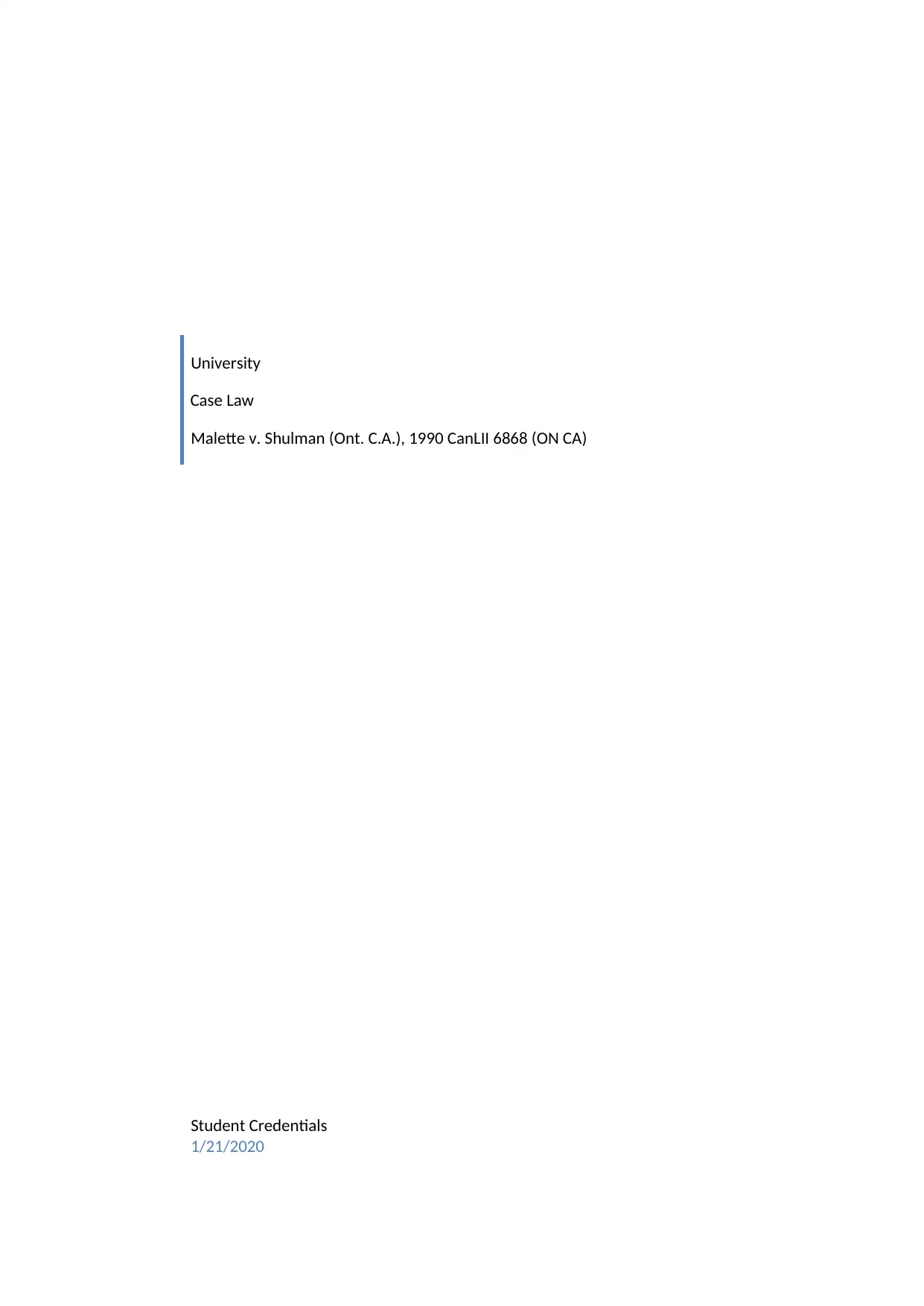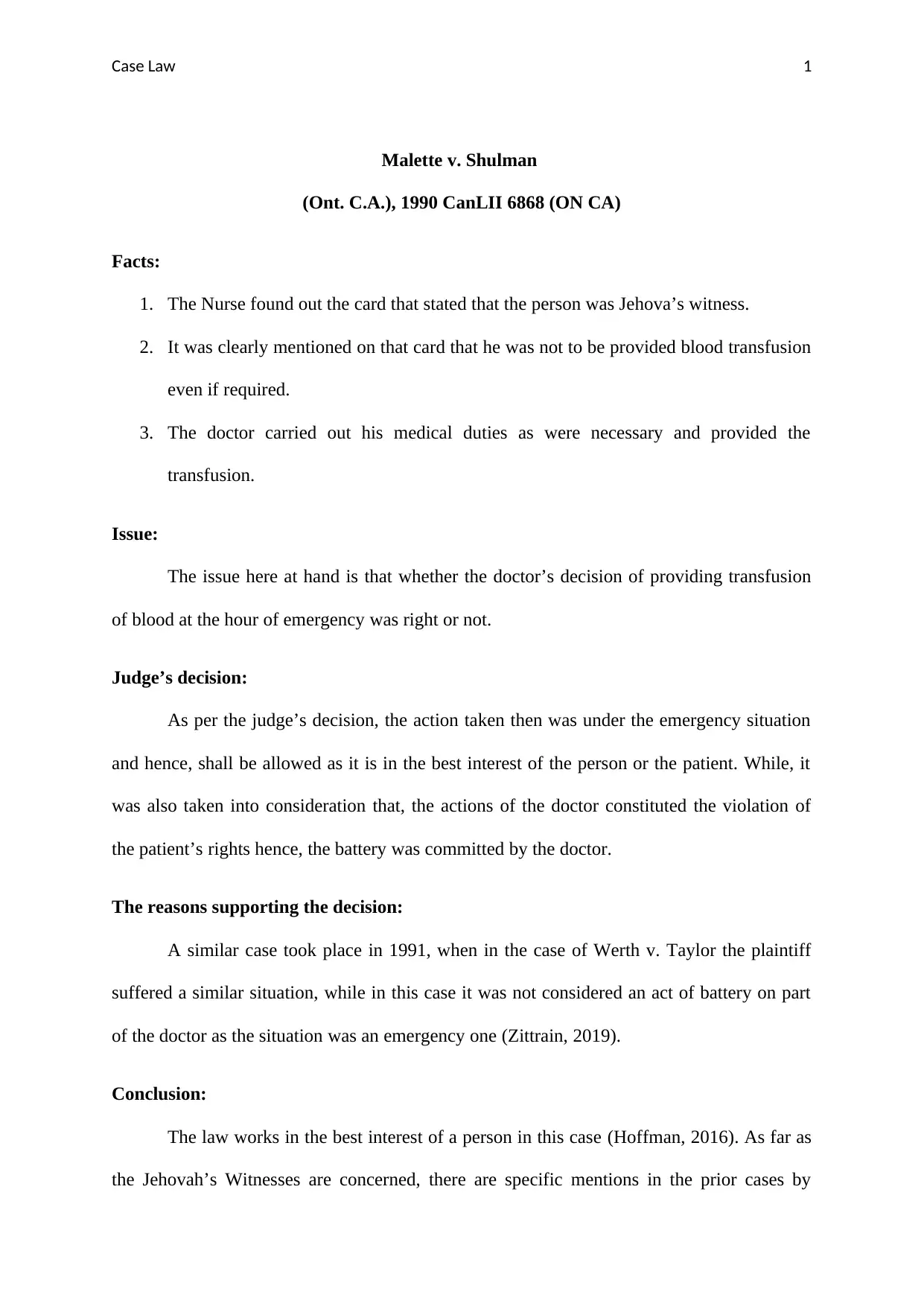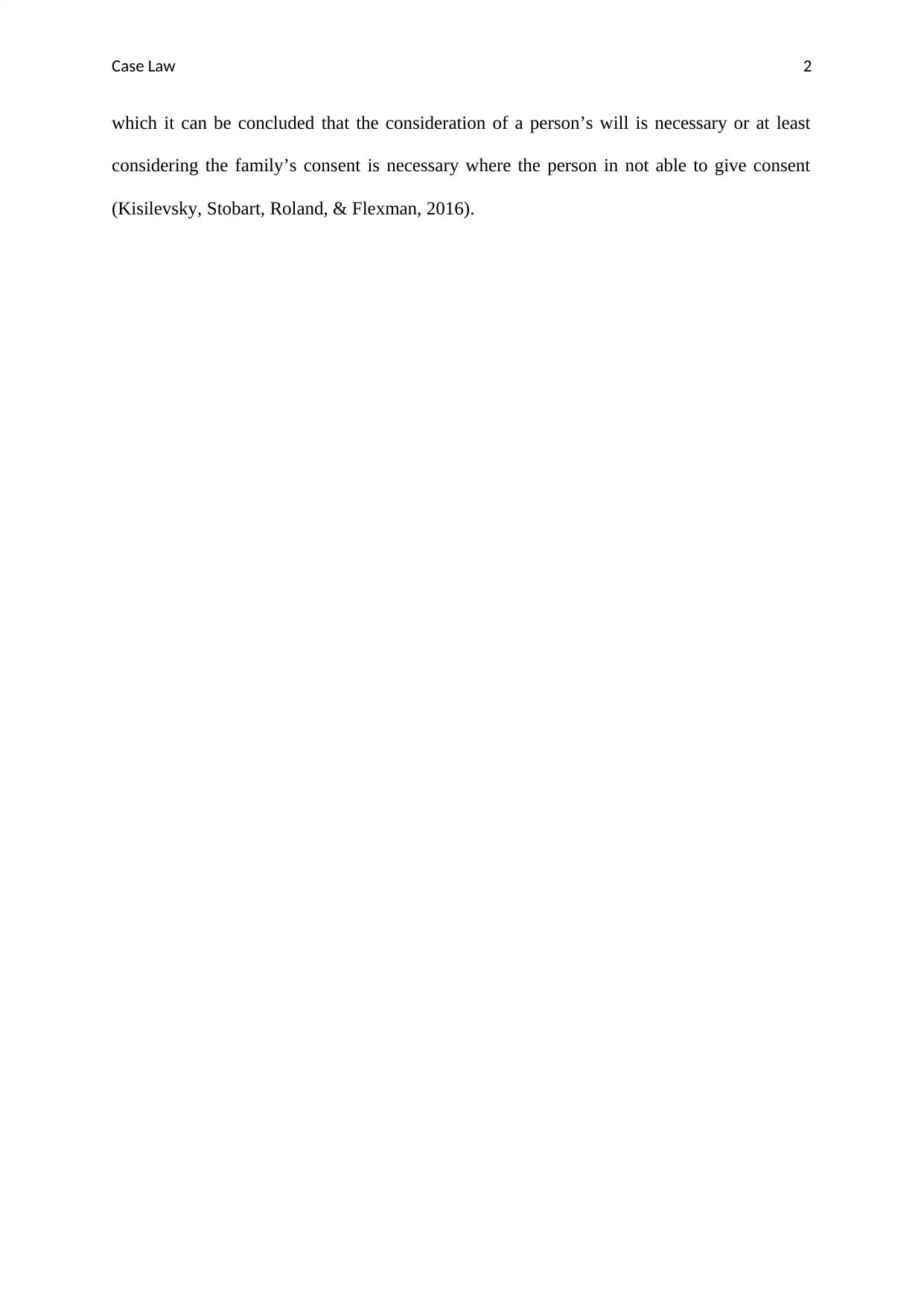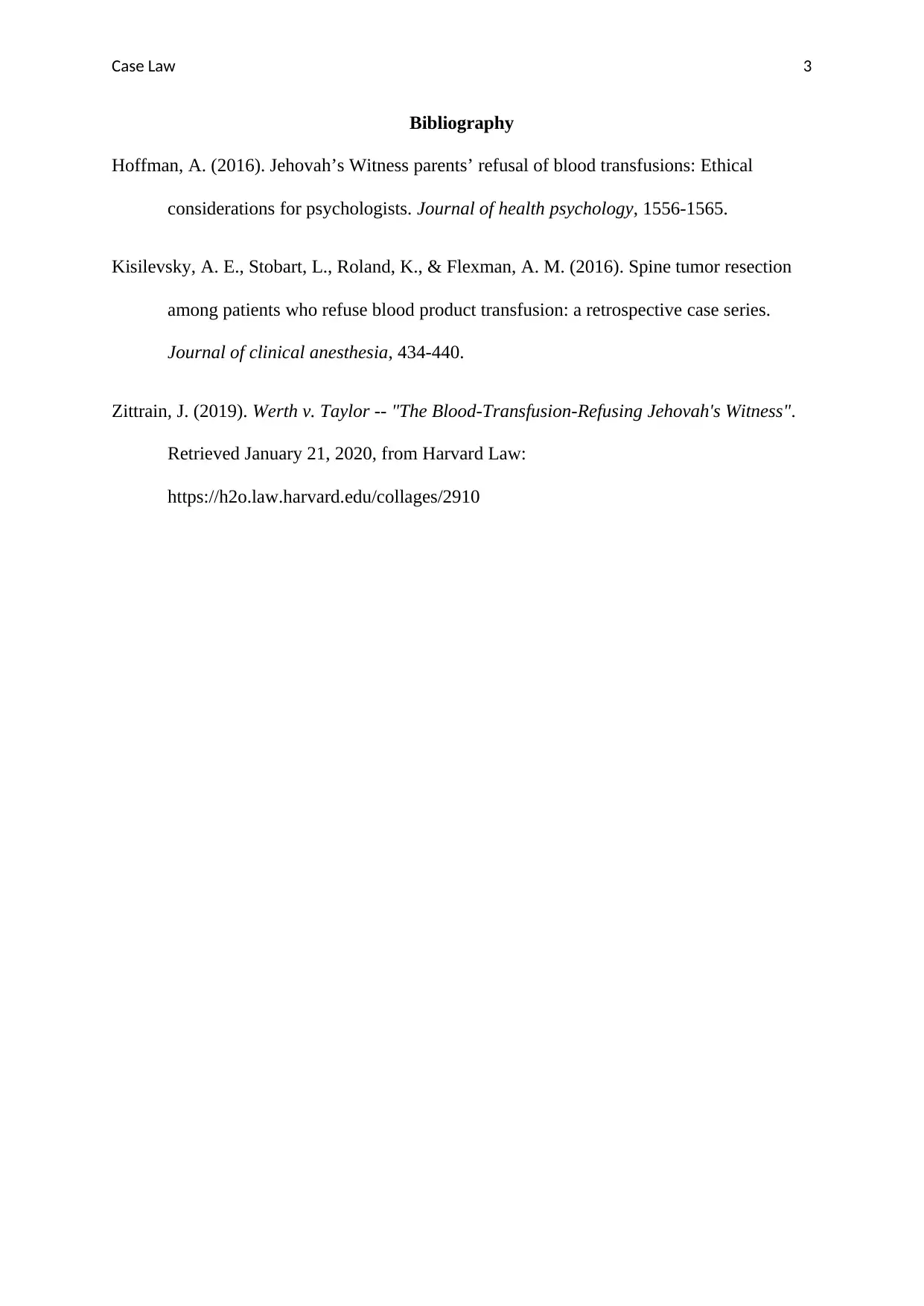Case Analysis: Malette v. Shulman (Ont. C.A.) - Hospitality Law
VerifiedAdded on 2022/08/23
|4
|462
|18
Case Study
AI Summary
This case study examines Malette v. Shulman (Ont. C.A.), a significant case in hospitality law. The case involves a Jehovah's Witness who, after a car accident, received a blood transfusion despite having a card explicitly stating her refusal. The doctor, believing it was medically necessary, administered the transfusion. The court addressed the issue of whether the doctor's actions were justified, considering the patient's rights and the emergency situation. The judge ruled that while the doctor's actions were performed in an emergency, they constituted a violation of the patient's rights, thereby committing battery. The decision considered precedents like Werth v. Taylor, where similar circumstances were not considered battery due to the emergency. The case highlights the importance of respecting a person's will, especially regarding medical treatments, and the consideration of family consent when the patient cannot provide it. The study analyzes the facts, the legal issue, the judge's decision, the reasoning, and the case's conclusion.
1 out of 4





![[object Object]](/_next/static/media/star-bottom.7253800d.svg)